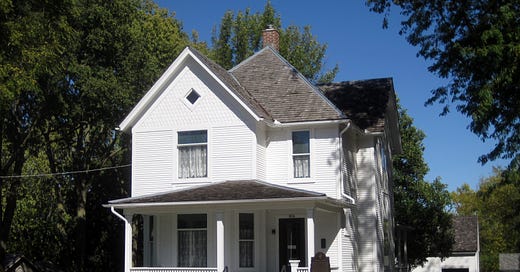The Horror of Housing
Micah Dean Hicks’s “The Carpenter and the Beast of Teeth”, Repossession and Recession Horror
“We reaffirm today one of the most treasured rights that was won by the Founding Fathers -- the right to own and hold property. For most Americans, that right is embodied in home ownership.”
Ronald Reagan, Remarks on Signing The National Housing Week Proclamation, October 19th, 1982
“Today I've come to Phoenix to talk about… the most tangible cornerstone that lies at the heart of the American Dream, at the heart of middle-class life -- and that's the chance to own your own home…A home is the ultimate evidence that here in America, hard work pays off, that responsibility is rewarded.”
Barack Obama, Remarks by the President on Responsible Home Ownership, Desert Vista High School, Phoenix, Arizona, August 6th, 2013
***
Housing and horror go hand in hand. From the opening of Ann Radcliffe’s The Castle of Otranto (1764) to the spectacular collapse of Roderick Usher’s home in one of Poe’s most famous stories (1839) the history of horror as a form has always been bound up in the position, use and status of housing. In contemporary horror and the shift from the page to the screen, the depiction of property has been one of the most consistent features of horror media, going from the strange expressionist sets of The Cabinet of Dr. Caligari to the near-billion dollar franchises of Paranormal Activity and Insidious we’ve been transfixed by visions of our homes as sites of terror, inhabited by forces unseen, almost all of which are completely beyond our control.
The reasons for this consistency of presence are grounded both in the aesthetic of the form and in the historical and cultural structures through which the horror form is mediated and evolves. Going back to the history of the development of the Gothic novel it’s important to highlight that the philosophical defence of property right - a cornerstone of the liberal-capitalist tradition - is broadly co-emergent with the development of the Gothic novel and the reactionary backlash to the radicalism of the French revolution. The French revolution was seen as horrifying not simply for its violence but for the revolutionary disregard for property rights where the land and buildings of the upper classes were simply expropriated in service of the revolution.
Keep reading with a 7-day free trial
Subscribe to The Haunt to keep reading this post and get 7 days of free access to the full post archives.



